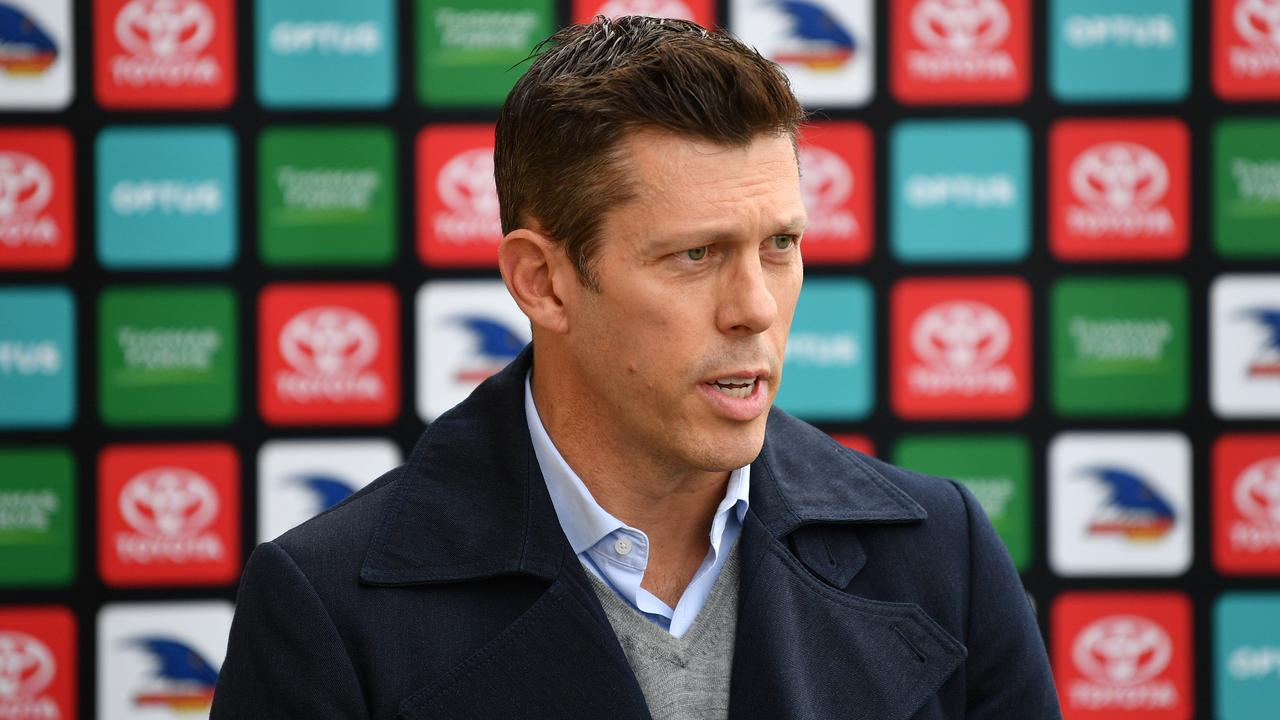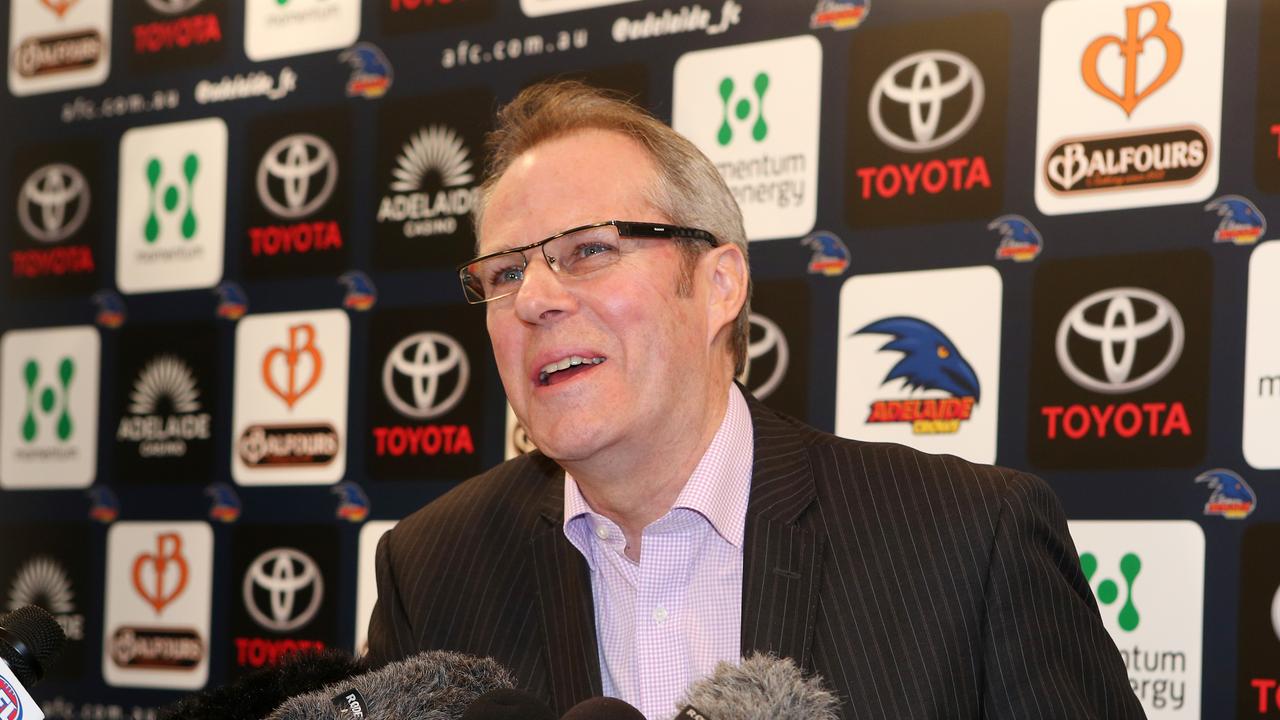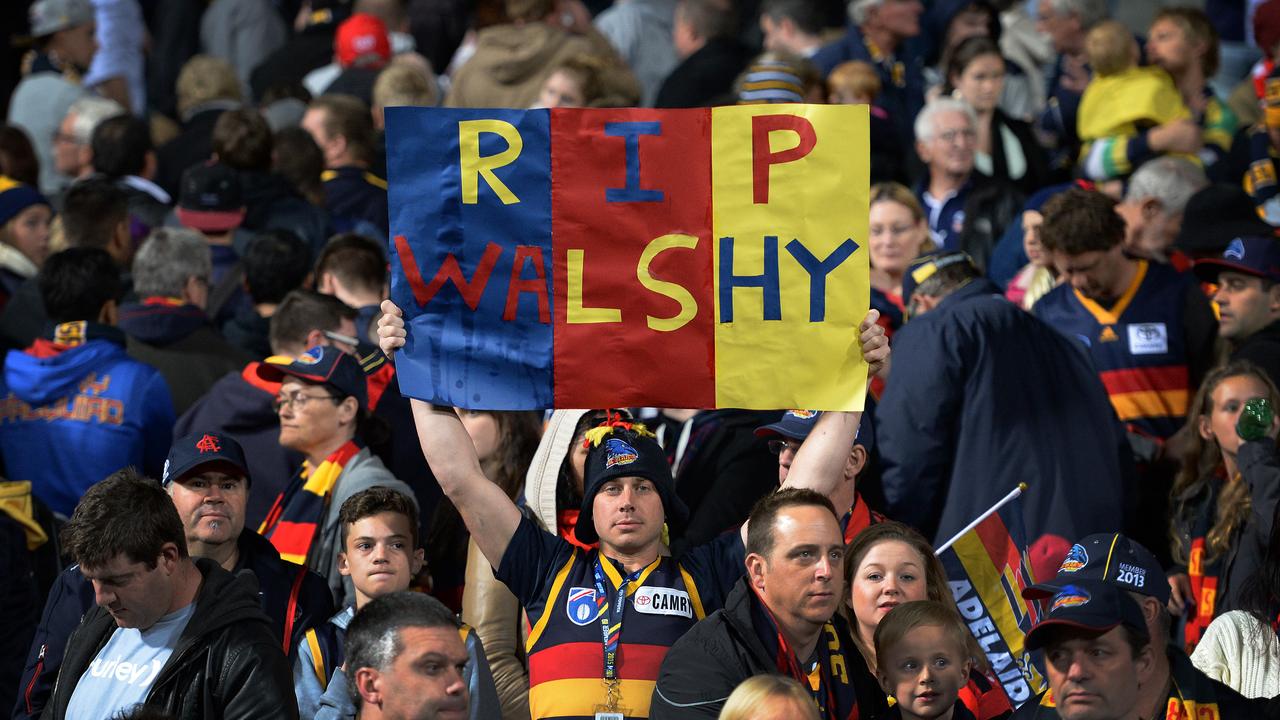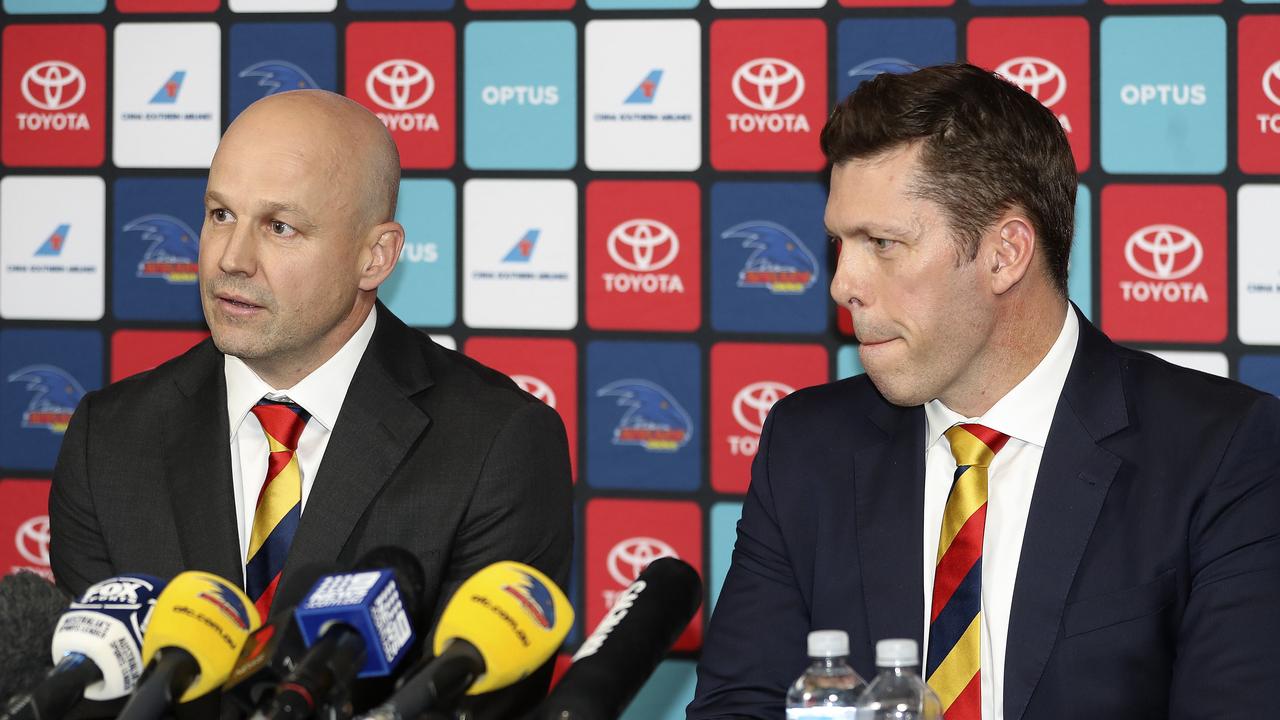Graham Cornes: Why Andrew Fagan’s reign as Adelaide Crows CEO has been successful
While Adelaide hasn’t won a premiership during Andrew Fagan’s tenure, he has led the club through some of its most testing times, writes Graham Cornes.

Andrew Fagan was always going to be judged harshly by the South Australian football public. After all, he was an outlander from the eastern states.
Not only that, he didn’t have an Aussie rules background.
We South Aussies can be a difficult lot. You can’t come waltzing into town and try to tell us how things should be done. We don’t disguise that inferiority complex very well.
Not only that he, was big, confident, immaculately groomed and just a trifle aloof – just a trifle.
On his appointment, he told the club’s board that he expected his tenure in such a high-pressure job to be between 5-7 years.
Despite some public opinion to the contrary, he’s done a great job in his six years at the helm, but a new Chairman, John Olsen, has brought new expectations.
Specifically the “Football First” approach that Olsen outlined at the club’s season launch on Thursday, the pressure of a new five-year strategic plan, the challenges of recovering from the COVID-19 crisis, moving to new headquarters which will require realising the assets of Football Park, signal a five-year period of unprecedented pressure and leadership focus.

John Olsen may have hastened the decision but it was not, as some are saying, because the pair couldn’t work together professionally.
Remarkably in the 30-year history of the Adelaide Football Club, there have been only three chief executives.
Of the three, Fagan has had by far the most difficult conditions under which to work. Of course Bill Sanders had it tough in the early days working out of the Atco hut with minimal staff, building the club from the ground up, and constantly beholden to the SANFL which kept a tight hold on the purse strings.
However, they were exciting times and on-field success came relatively quickly. Sanders had that avuncular appeal that belied a ruthlessness that the Crows fans never really saw. He remains much loved by the legions of Crows fans.
Steven Trigg was the heir apparent when Sanders retired from the position. Confident, eloquent and charismatic, he’d worked his way through the club’s executive ranks and was an obvious, popular choice.
It’s true he was blindsided by the treachery of the AFL, the SACA, the Port Adelaide Football Club and a state government sympathetic to Alberton when the move to Adelaide Oval was eventually revealed. However, the move would eventually make a financially strong club even stronger and enhance his status as a corporate leader.
Trigg’s demise came not of his own doing, but of the convoluted Kurt Tippett saga which ran foul of the AFL’s draft tampering regulations.
A massive fine and a six-month suspension were ridiculous, overly severe sanctions imposed on him. Trigg bore the responsibility, perhaps unfairly, for the affair but there are still Crows fans who would blame him for the draft penalties the Crows had to endure as a consequence.
Then came Fagan. If there was one mistake he made early, it was that he didn’t read the room very well. Indifferent to previous relationships, several early decisions and attitudes ran foul of a couple of the media opinion makers, both in print and radio.

Media shouldn’t dictate corporate processes but those constant jibes can be a persistent annoyance and do impact on public relations. Internally at West Lakes there was some ruction when the Crows Museum was dismantled to make way for corporate space and long-term loyal staff were either reassigned or made redundant.
His ruthless and abrupt manner alienated some staff but he continually met key performance indicators. Sadly, corporate avarice always has victims that the bottom line can never justify. Then club legend Andrew McLeod rounded on Fagan when government funding for his academy was withdrawn and the club couldn’t sustain the investment.
Who is the fan base going to side with – a club hero or the executive in the front office?
However, despite the critics whose voices are amplified and distorted by the various platforms of social media, Fagan’s tenure has to be regarded as a success.
The list of achievements is long and impressive.
A football club is led by the triumvirate of the chairman, a chief executive and the coach, but when coach Phil Walsh was murdered in 2015, enormous pressure and responsibility fell on Fagan’s shoulders. It’s astonishing really that two years later the team played in a grand final, regardless of the unfortunate outcome.

The club remains financially strong – one of the strongest in the competition and independent of the AFL. Ongoing negotiations with the Adelaide Oval Stadium Management Authority were a challenge then strong corporate leadership was necessary during last year’s pandemic restrictions.
Fagan provided that and the club’s membership base continued to expand.
The establishment of the club’s AFLW team was a triumph for Fagan and the team’s two premierships justification of the investment.
Women’s football in South Australia is flourishing – no small thanks to the Crows example.
The club’s diversification into esports was a mystery to traditional footy fans but it has been a resounding success, as has the union with the Adelaide Giants baseball team.
Moving from the desolation that is now West Lakes was an initiative of Fagan’s and while it has been obstructed by the COVID-19 crisis, it is one of the club’s priorities.

It will happen and probably would not have without his leadership on the issue.
One of the club’s lesser-known achievements has been its Reconciliation Action Plan.
Those who were fortunate enough to hear our Commissioner of Aboriginal Engagement, Dr Roger Thomas, and the charismatic Jack Buckskin speak at the club’s 2021 season launch on Thursday night have an understanding of how far the club has come on this vital social journey.
The social media platforms and the arbitrary polls may not be kind to him.
The fans and some ex-staff may not love him but they ignore the enormity of the task that faced him when he arrived in Adelaide.
The Adelaide Football Club may currently hold the wooden spoon but Crows are still the biggest show in town and the most influential social and sporting organisation.
Andrew Fagan can ride out of Adelaide, as he rode in, with his corporate reputation and his self-esteem intact.
More Coverage
Originally published as Graham Cornes: Why Andrew Fagan’s reign as Adelaide Crows CEO has been successful




